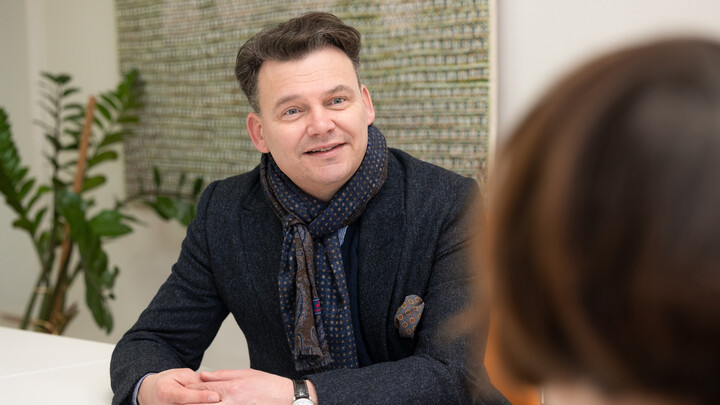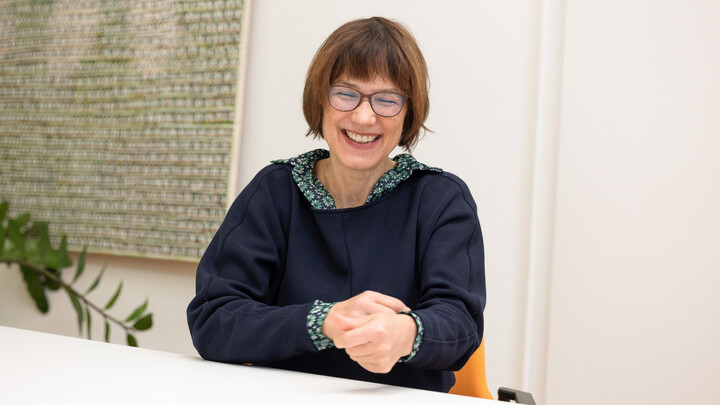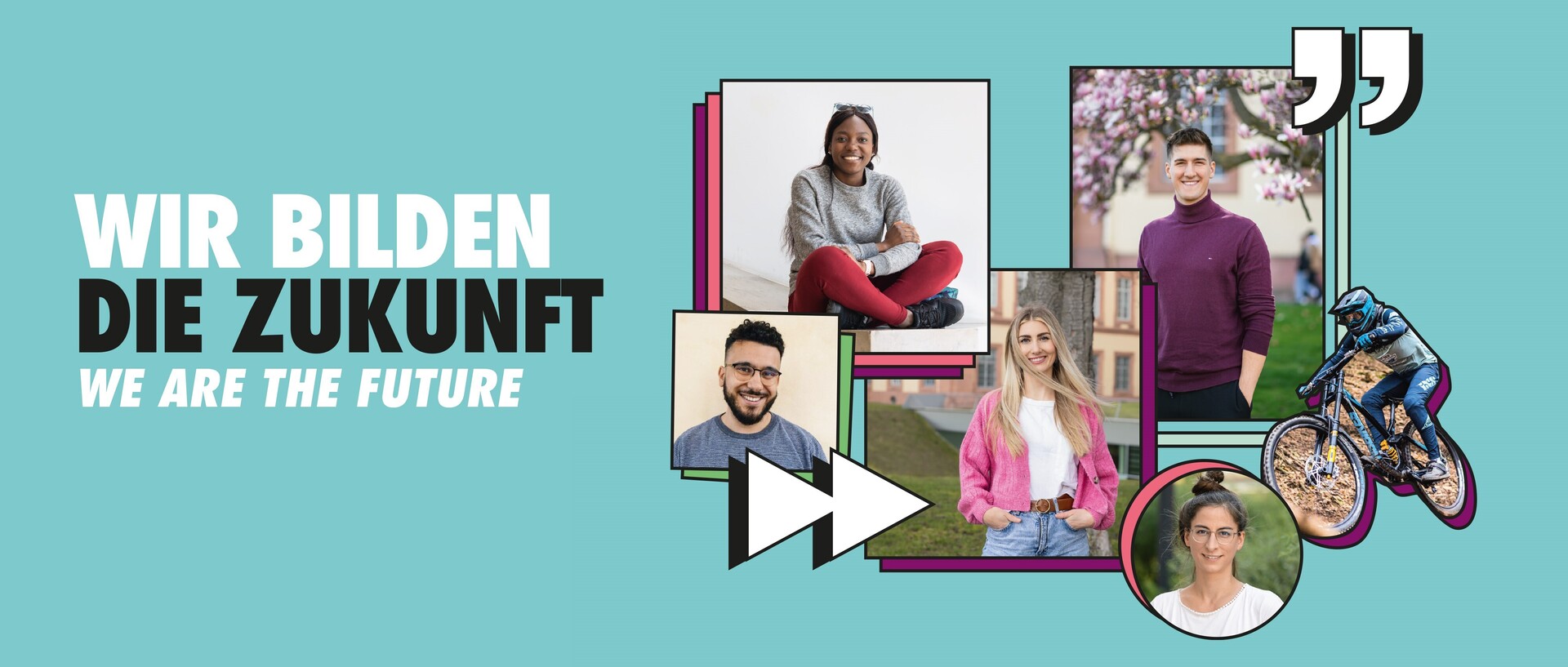Fit for the Future
Prof. Annette Kehnel, Vice President for Student Affairs and Teaching, and Prof. Henning Hillmann, Vice President for Research and Early-Stage Researchers, have held their offices for two years. FORUM asked them what the university can do to make itself—and its students and early-stage researchers—fit for the future.

FORUM: Is the University of Mannheim attractive to students and early-stage researchers?
Hillmann: I think that early-stage researchers—postdocs, doctoral candidates, junior professors—are really motivated by the topics they’re interested in. As a small university, we can’t cover every subject, so we focus on doing outstanding research in certain fields. And we have the benefit of being a campus university: Everything’s close together, you can meet up with people in person, eat lunch and do sports or exercise together, brainstorm ideas together. Those are things that both students and academics appreciate. And our infrastructure and facilities are also good or very good compared with many other universities. All these factors have combined to give us an outstanding reputation in Germany and abroad.
Kehnel: Studying in the Schloss, a baroque palace, is a once-in-a-lifetime experience. We’re in a strong position: We’re one of Europe’s top 20 universities and Germany’s most popular university as voted by our students. Our research and teaching cover some very in-demand topics. Our degree programs enhance our students’ job prospects, as companies of all sizes appreciate our alumni as valuable employees. We’re also located right in the heart of Europe, in a metropolitan region with a booming economy. And our international semester structure is attractive to international students.
FORUM: The digital transformation and sustainability are two very well-known priorities for the future. Are there other issues that are of particular interest to students?
Kehnel: For our current students, one of their formative experiences was the isolation imposed on them by the government’s Covid restrictions. So there’s a big focus on psychosocial issues at the moment. And awareness of those issues is growing, so we’ll keep engaging with them in future too. That demand is also evident in the very high application numbers for psychology.
FORUM: Work–life balance is important to the younger generation. Is there such a thing as study–life balance, and are calls for it growing?
Kehnel: When you’re a student, all doors are open to you. I think above all we need to empower students to strike their own work–life or study–life balance. Offering virtual teaching could help with that. And the digital assessment options we offer will also make a big difference.

FORUM: Another relevant aspect is differences in people’s life circumstances. For instance, students may have children or be caring for a family member. How can their needs be met?
Hillmann: The digital transformation is making learning into less of a linear process. If a lecture is recorded, I can do something else while it’s going on and then watch it later. It’s important that students are always expanding their horizons beyond their studies. That’s our goal in the ENGAGE.EU network, which ensures that students who for whatever reason can’t travel abroad still have the opportunity to take courses digitally.
Kehnel: I think studying at university needs to become less like school, so that there can be more focus on enjoying it. I don’t study to do exams but to learn about things that interest me. That’s a diversity issue, too. There’s definitely an openness to doing things differently. In the future, lifelong learning will be more important. That will mean new modes of studying, not just full-time but also alongside work.
FORUM: What support structures are in place for early-career academics at the university?
Hillmann: Intensive supervision is very important. Some subjects, such as business administration, already offer a comprehensive mentoring program during the postdoc phase. We want to expand similar programs to other subjects too. It’s also important that there’s enough research funding for doctoral candidates and postdocs, and that they get paid adequately. One tried-and-true approach is seed funding, where researchers are given the resources they need to develop ideas into full-blown projects. Another is to provide financial support for research trips. There are also programs that provide one or two years’ funding for a doctorate, or simply funding for the last six months so that students can put the finishing touches on their thesis.
FORUM: What future plans are there for students and early-career researchers at the University of Mannheim?
Kehnel: A degree is the epitome of a future plan. It gives our students the key to shape their own future and that of the society they live in. Two key issues are sustainability and the digital transformation. Both as part of the curriculum content and as part of the student experience at our university. Although we’re an in-person university, we have—in part due to Covid—developed lots of innovative virtual teaching and learning options. For instance, students can write a blog for their semester project, or use reading lists that have been enhanced with digital functions by the InnoMA project. A key point for us is that it’s the younger generation, the students, who drive the innovations. We simply need to support them.
Hillmann: Early-stage academics are looking for a university that’s a good fit for their research interests (that’s their passion, after all) and offers an ideal environment to carry out their research. We provide a framework to suit the culture of each discipline. For instance, structured doctoral programs, or positions that are closely integrated with research projects. Above all, the University of Mannheim aspires to always be at the forefront of scholarly and scientific progress, to help shape that progress, and to employ researchers who are leaders in their fields. That will give rise to collaborative networks in which early-career researchers are embedded, and allow new areas of research to emerge that are of interest to the younger generation of academics.
Text: Luisa Gebhardt and Dr. Maartje Koschorreck/
